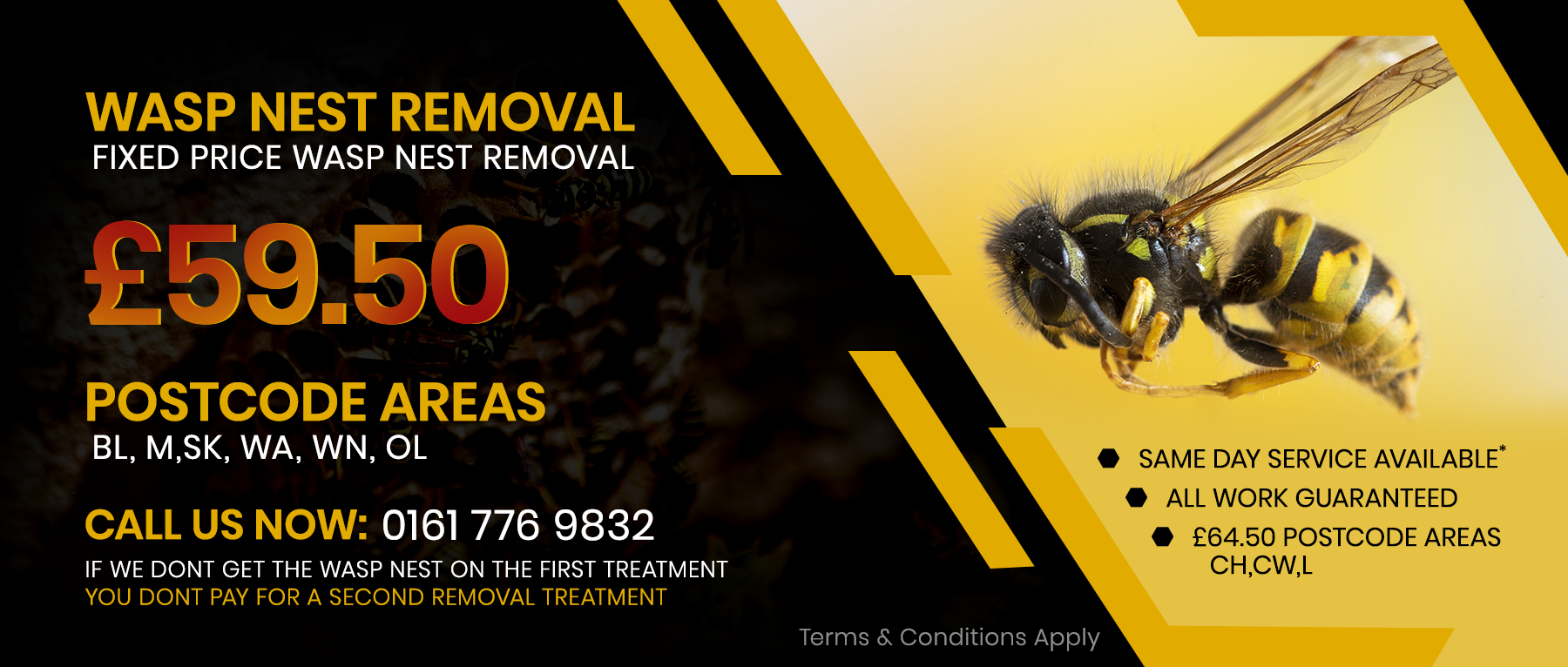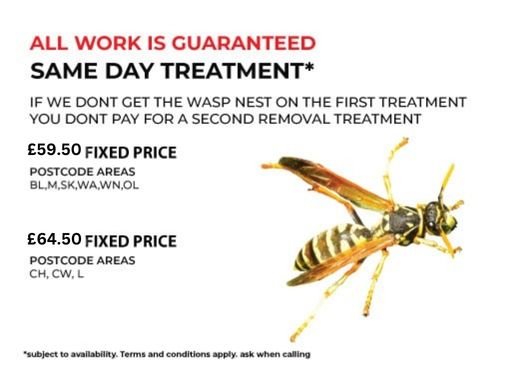

Need Help? Call Us On 0161 776 9832 For Expert Pest Control Advice On How To Identify Pest Infestations And Help Solve Your Pest Problem.
Alderley Edge Wasp Nest Removal Services
The wasp is an insect that comes into its own during the warmer months of the year. Come springtime. A wasp queen will be out of hibernation and looking for a place to lay eggs. This place will eventually develop into a wasp nest, housing thousands of worker bees. It is this sheer number, together with the fact that they can sting, that will, each year, cause a nuisance to many people out and about enjoying the weather. Luckily, with our Alderley Edge wasp nest removal treatment service, we are on hand to provide a safe and effective service to rid you of any wasp control problems.
About Wasps and the Hornet

The Risks
The dangers posed by wasps come from the fact that they are stinging insects and can attack in numbers. This danger is more pronounced closer to a nest because they instinctively protect it from any perceived threat, even though there may not be any. Because of this, it is safest to consult professionals who have the equipment and experience to deal with nests in the safest way possible.
Wasp Removal - Our Services
One of the most effective ways to solve a wasp control problem is to have the nest removed. With our Alderley Edge wasp removal treatment, we can draw a nest in the safest way possible: protective clothing and specialist equipment.
